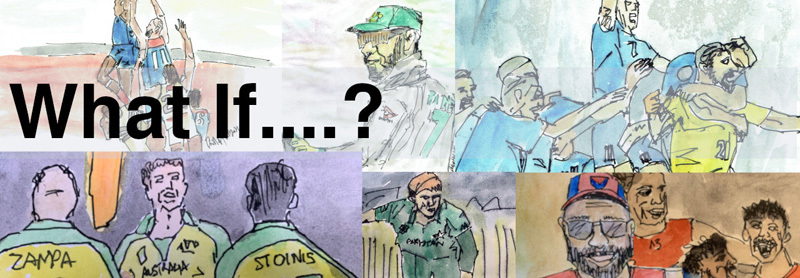
I am a voracious reader, with eclectic tastes, but one of my favourite genres is what is known as alternate history. Alternate history is based around the idea of “what if” where something occurs to change the course of history as we know it, and explores the changes that even the most minor event can cause.
Bullets with Butterfly Wings
A simple example is: What if Germany won World War II? Taking it from that point, the writer explores the way history diverges, perhaps how a Nazi government would rule or how Japan and Germany would settle their imperial ambitions once there was no common enemy left to fight.
The point of divergence could be a major event along those lines, perhaps JFK surviving his assassination or the South winning the American Civil War. But, sometimes history hinges on the tiniest events, a matter of an Archduke’s chauffeur taking a wrong turn or a young officer dropping a case of maps before a big battle.
Like the flap of a butterfly’s wing sending a waft of air that builds momentum as it travels around the globe until it triggers a storm in a far-off land, this “butterfly effect” sends ripples through time that create more and more change as they spread until the world we once knew no longer exists.
The Greatest Game of All
Perhaps it is no wonder I love cricket so much, because—perhaps more than any other sport—it is full of these “what if” moments on which an entire game, or series, can turn. A batsman dropped on zero might go on to score a match winning century, or a stupid shot choice on the last ball before tea might be the start of a collapse that snatches defeat from the jaws of victory.
Some of cricket’s greatest moments have been the result of a cascade of “What ifs”, especially the famous Tied Tests where a single run would have made all the difference (or in the case of the Madras one, an umpire who saw his chance at immortality?).
Or, in what I consider the greatest game I have ever followed from start to knuckle-biting finish, the 2005 Edgbaston Test, was full of “what if” moments where the game could have just as easily pivoted the other way. Coming off an absolute flogging at Lords, if England had lost the series would have been all but over, but instead they mounted one of the greatest comebacks ever.
You could point to Shane Warne dropping a catch in the dying overs he would have taken 999 times out of 1000, but the real “what if” in that match was, “What if somebody had spotted that rogue cricket ball before Glen McGrath stood on it and did his ankle?” Or what if Ricky Ponting had listened to Warney and gone into bat when he won the toss? Aren’t we glad he didn’t!
Putting a Price on the Priceless
But, while you can’t put a price on a moment in that, you can point to one moment that has probably been worth millions if not billions. People may not remember, but at, one point, India was not a big market for T20 cricket, with ODIs still being the king. In the first T20 World Cup, India were playing arch-rivals Pakistan, and Pakistan were cruising to a win when their captain played a fairly nothing shot straight down a fielders throat.
It was that moment that cemented the popularity of T20 in India and paved the way for the IPL—and millions and millions of dollars being made by everyone involved. But, what if he hadn’t played that shot, and Pakistan had won? The entire landscape of the cricketing world would look very different today.
Are you a Caterpillar or a Butterfly?
This “what if” factor makes cricket, and sport in general, so exciting. Knowing that, even in a team sport, we can as individuals make a difference, that in one moment of a particular game the outcome may depend on what we do, should inspire us and keep us going through those games where we feel like we are superfluous, excess baggage.
Even more so, it should remind us that no matter how insignificant we might feel, there will be moments in our life where we will be faced with a “what if” that could make all the difference in ours, or someone else’s life. Whether it is choosing to be kind to a random stranger, or not look the other way when faced with sin, we can flap our wings and make a difference we may never see—if we choose to.

David Goodwin is the former Editor of The Salvation Army’s magazine,War Cry. He is also a cricket tragic, and an unapologetic geek.
David Goodwin archive of articles may be viewed at http://www.pressserviceinternational.org/david-goodwin.html